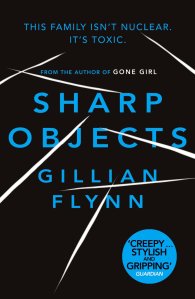Fiction – paperback; Scribner; 450 pages; 2021.
Addiction, self-loathing, corruption — and shady property deals — form the heart of this darkly humourous novel that has recently been shortlisted for the 2022 Kerry Group Novel of the Year Award.
Affluent but adrift
Kevin Power’s White City is told from the point of view of 27-year-old Ben — the son of a retired South Dublin banker — who is in a rehab clinic trying to figure out how he lost control of his comfortably privileged life.
I am the bitter only son of a disgraced rich man and I have washed up here in rehab, at the end of every road, with zero money, zero prospects, zero hope. I have cheated and stolen and lied — lied to myself most of all. I have consorted with fraudsters and war criminals. In an effort to beat my father at his own game, I failed: at love, at money, at life.
The narrative charts Ben’s fall from grace, which begins with his father’s arrest for “stealing €600 million from the books of his own bank” and ends with him developing a serious drug habit that lands him in the St Augustine Wellness Centre for Drug and Alcohol Rehabilitation, which he describes as:
[…] a detox tank and monitored care facility for the rich and the rich-by-proxy, for the gouged, the spent, the luckless, for the terminally middle-class.
In between, he moves in with his girlfriend Clio (to save costs), takes a job with a dodgy marketing agency (which doesn’t pay enough to keep him in the manner to which he’s been accustomed) and bumps into an old school friend, James Mullens, who offers him the chance to get rich quickly (he takes it).
That decision to join James’ new business — a property development in Serbia — ultimately leads to his downfall because what he doesn’t know when he signs up is that it’s a high-risk scam pitting a group of rich Dublin lads against a bunch of Balkan gangsters. The result is farcical — and dangerous.
Fast-paced romp
Told in the first person, White City is a fast-paced romp laced with biting humour. For all his selfishness, Ben demonstrates an astonishing amount of self-awareness, but the knowing nods and winks are probably for the benefit of his therapist, for whom he is penning a memoir of sorts.
How am I doing so far, Dr F? I hope you’re happy with the family stuff. I’d hoped to get through this whole account without mentioning my mother at all, actually — or perhaps by mentioning her only indirectly, like Perseus (is it?) looking at the Gorgon in his shield. If that’s okay with you, I might skip over the real childhood stuff, or save it up for later.
His story, largely told in chronological order, is intercut with his therapy sessions and includes his frank, sometimes cruel conversations with Dr Felix, his sponsor at the rehab clinic.
As his tale is fleshed out, and his life begins to spin out of control, it becomes clear that Ben’s financial dependency on his father has left him vulnerable, his relationship with both parents, tenuous and suspect as it is, becomes stretched to breaking point and his greed gets the better of him.
White City is wickedly funny throughout, but its razor-sharp commentary on materialism, the nouveau rich and the shallowness of modern life adds an extra layer of meaning. I think it rightfully deserves its place on the aforementioned shortlist.
If you liked this, you might also like:
‘The Devil I Know’ by Claire Kilroy: A wickedly biting satire about all the speculative development, corrupt politicians, prostitution and international money lending that led to the collapse of the Celtic Tiger.
‘Here are the Young Men’ by Rob Doyle: Set in 2003, when Ireland was awash with jobs and cash, this is a nihilistic drug-fuelled story about four teenage boys who are awaiting the outcome of their Leaving Cert exam results which will determine their future lives.
This is my 2nd book for the 2022 Kerry Group Novel of the Year Award. I am trying to read the entire shortlist before the winner is announced on 1st June.








